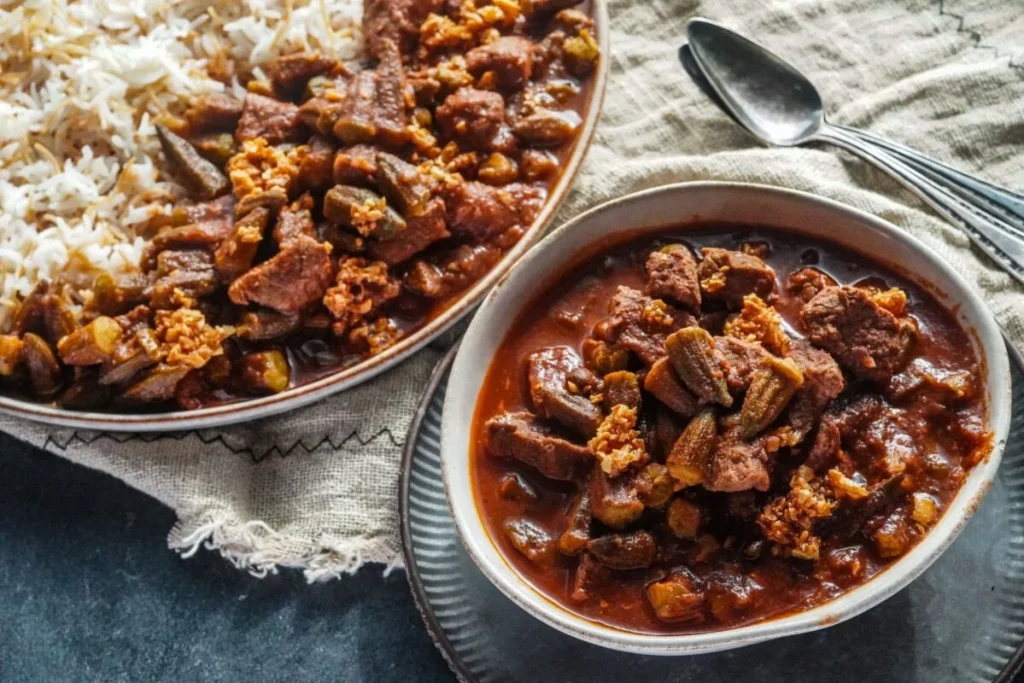Food is more than just what we eat – it is a reflection of history, family, and tradition. In Africa, stews hold a special place at the center of daily life. These dishes are not only rich in flavor but also carry hidden stories of heritage, survival, and togetherness.

A Symbol of Unity
African stews are often prepared in large pots, shared among family members and neighbors. Eating together from one bowl is a tradition that represents unity, respect, and a sense of community. Whether it is a peanut stew in West Africa or a vegetable-rich dish in East Africa, the practice of sharing food continues to strengthen social bonds.
Ingredients with a Purpose
The ingredients in traditional African stews are not chosen by chance. They often reflect the local environment and resources. Cassava, maize, yams, okra, and groundnuts are staples that provide essential nutrition. Many stews also incorporate spices, chili, and herbs that not only add flavor but also serve as natural preservatives and medicines.

A Link to History
Colonial trade routes, migrations, and cultural exchanges have influenced African stews over centuries. Tomatoes, chili peppers, and maize, originally from the Americas, became essential in many African kitchens. Every stew tells a story of adaptation, resilience, and creativity.
Passed Down Through Generations
Recipes for African stews are rarely written down – they are shared from generation to generation. A grandmother’s pot of stew is more than food – it is a living memory, a lesson in patience, and a way of keeping culture alive.

Beyond the Bowl
Today, African stews are gaining recognition worldwide. From fine dining restaurants in global cities to street food stalls in Nairobi, Lagos, and Cape Town, these dishes carry with them the warmth of home and the identity of a continent.
Stews are not just meals – they are symbols of history, culture, and love. Every spoonful is a taste of Africa’s soul.
Contact Information:
Address: Kenyatta Avenue, Nairobi, Kenya
Phone: +254 20 2219547
Notice:
We use cookies to improve your experience. By accepting, you agree to the use of analytics and personalized ads. By staying on our website, you consent to the transfer of your information.
